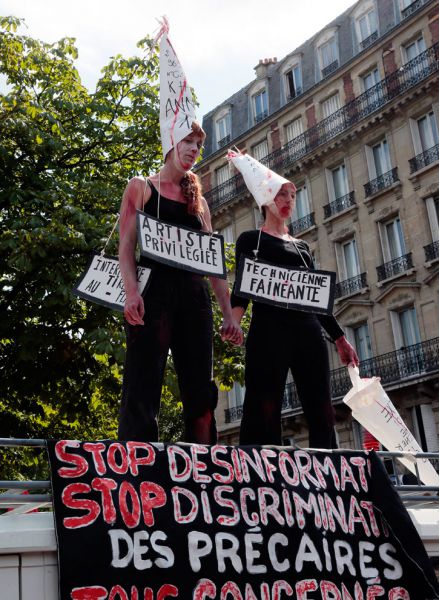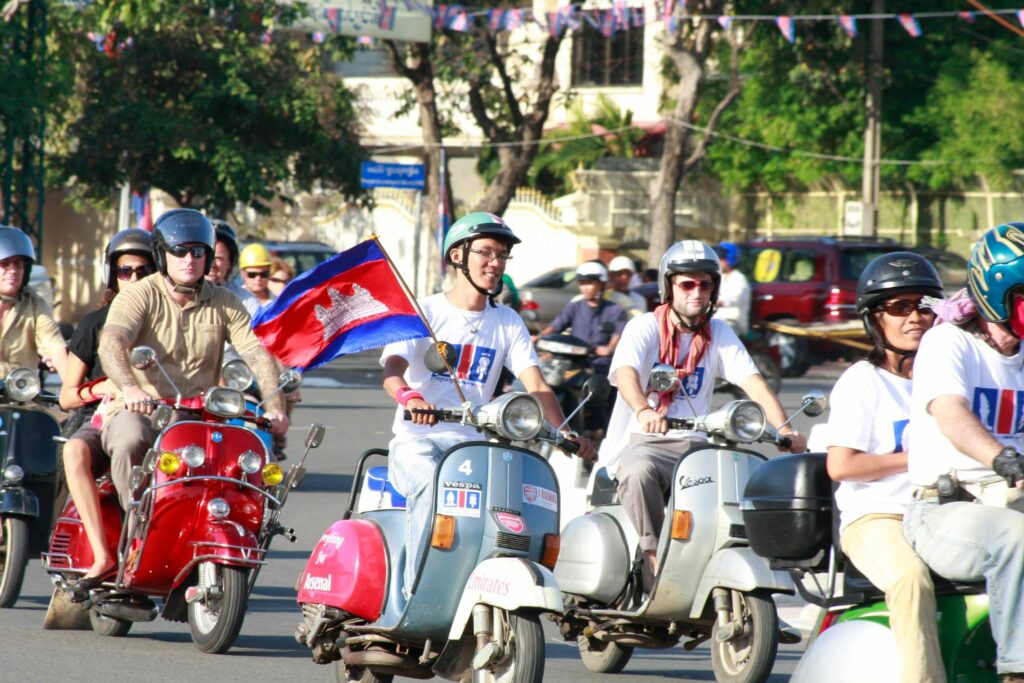TUESDAY, 26 AUGUST 2014, Unofficial Translation from The Phnom Penh Post’s Khmer edition
TONG SOPRACH
ការចំអកឡកឡឺយធ្វើឲ្យគេឈឺចាប់គួរតែកាត់បន្ថយ

Many people ascribe superiority to themselves regarding their wealth, social statuses and education and then look down on others they consider inferior. Many others curse, mock, threaten and discriminate against one another. Meanwhile, a number of people find it funny to use improper words to address the others based on their appearances such as “skin color of ethnicity”, “curly”, “fatty”, “small or big-eyed”, “shorty”, “Kteuy [LGBT]”, “family name or parent’s name”, and sexual verbal harassment and some used adjectives as such “stupid, know nothing” or highlight another’s poverty, illiteracy or language and so on, just to irritate them. Some threaten others on the internet. Online social networks, such as Email, Facebook and Twitter, are now the platform of cyberbullying. More and more people have become victims of verbal sexual and emotional abuses.
All the activities mentioned above are issues that could have grave repercussions such as conflict, violence or even suicide. In English, there is a term that covers all of them; that term is “bullying”.
“In Cambodian society, the practices of bullying usually emerge among the powerful or influential people, ranging from elite politicians to ordinary citizens. Last week, Prime Minister Hun Sen angrily gave a speech in public, which demeaned a civil society worker who had criticized him for his failure to handle the land dispute problems in Cambodia. In his speech, the Prime Minister has added that, “You are so, so stupid! Watch your language, you fools! Don’t be so cheeky, you sons of bitches! ”. It has been more than a year since the Prime Minister has made such an aggressive speech like this.
In his response last year to one of my columns in The Phnom Penh Post’s Khmer Edition under the heading, “Cambodia Should Establish a Code of Conduct and Language Standards for its Leaders”, the Prime Minister Hun Sen accepted that he occasionally used rough language. However, he explained that it was because he could not put up with some politicians who humiliate him by calling him names, especially “Ah Kvak” [a very offensive word for people, even more serious for blind people], as he had lost his left eye. and then he questioned “why they called me “Ah Kvak”?”
Ever since then, never hadthe head of the government used such words. The Prime Minister has sought to enact a law against offensive languages among politicians. Nonetheless, public opinions have criticized this law [wanted], for it appears to put more pressure on the leaders of opposition parties. This kind of bullying in Cambodian politics can be countered not just by the creation of a code of conduct, but also by politicians refraining from using rough language in their public speeches.
In spite of efforts to create a code of conduct for governmental institutions, Non-Governmental Organizations, and private corporations, some senior officials or employees in these institutions, who have been influential for a long time, still use coarse language those in lower positions and new employees, resulting in annoyance and even conflicts. Such acts do not only affect the two people’s relations but also provoke disturbance among other co-workers. Therefore, the senior officials or influential personnel in these institutions, for the sake of their reputation, should pay more attention to bullying activities in the workplace, as they may have adverse effects on their co-workers and standards of professionalism at work.
In most Cambodian communities, some older people seem more powerful, ticking off some comedians they watch on the television, use coarse language and offensive gestures in their daily communication with the local people such as “Hey Asshole! I swear I’m gonna break your skull!” to someone who appears to be of a lower education or economic background. Again, this activity may arouse conflict and violence within the community while it also influences the behaviors and attitudes of the children taking after these elders. On some occasions, old people have even incited children to hate and fight with each other.
Recalling my time in primary and secondary schools during the 1980s, I remembered many classmates of mine and me cursing each other and making fun of each other’s family names when we argued or felt humiliated, then starting physical fights. The same thing still exists in schools today. Having bullies in the school leads to instability and violence, either inside or outside of their school. Students will start a fight just for trivial matters. For example, they regard staring or a minor disagreement as a mistreatment, which is worth getting into a fight for. In some ceremonies, such as in disco clubs, where dance parties are held, physical fights often erupt, just because someone stepped on another’s feet or unintentionally touched them. According to Gender and Development for Cambodia qualitative report in 2003 on Youth gang violence in Phnom Penh found that the fighting associated with bullying among youth gang members as they say: “We are involved in fighting because of the look face for a long time and arguments. So we fight because of that.”
All of these are related to the lack of emotional self-regulation and knowledge about bullying. There are neither lessons nor documents about bullying in the schools; only the disciplinary rules that could be ignored by the students such as “No fighting in school!” exist. Outside, in the community, there is no youth center that educates young people about bullying either.
The 11-page National Policy on Cambodian Youth Development does not cover bullying and its prevention. Many children and young people in Cambodia suffer from the others’ mocking their parents, who are prisoners, AIDS infected, or former Khmer Rouge cadres. Recently, it is a humiliation for them being called the children of prisoners!, AIDS patients!, or Khmer Rouge kids!. These cases really need moderating and prevention.
Nevertheless, bullying problems do not only exist in former post conflict countries like Cambodia. It is also a very hot issue in developed countries. For example, the United States of America, where I have just returned from visiting, bullying problems are acute, for its state as a melting pot of different races. Both national and community survey reports have shown the association between suicide or suicide attempts and bullying. Accordingly, the decentralized government has been working to deal with small cases before they deteriorate and cause too much trouble, particular by setting preventive policies.
For instance, the government of Washington D. C. enacted its bullying prevention policy in January 2013. Since June of the same year, a citywide youth bullying prevention program has been implemented. Meanwhile, Washington DC has mandated that all schools which are under its management should institute an anti-bullying curriculum to prevent bullying and to deal with bullies among students. Moreover, there are many centers to educate children and young people about bullying and to assist them in countering bullies.
In conclusion, the Cambodian government should revise and include the prevention of bullying in the national policy on Cambodian youth development. This policy should be enforced in the form of childhood intervention. In school, they may begin right away with the delivery of information to students during the morning assembly at the flagpole even before a concrete anti-bullying program has been established. As the Khmer proverb goes, “You must teach your kids when they are still young, just like tempering the steel when it is still red.”
Tong Soprach is a social-affairs columnist for the Post’s Khmer edition.
Comments: [email protected]
